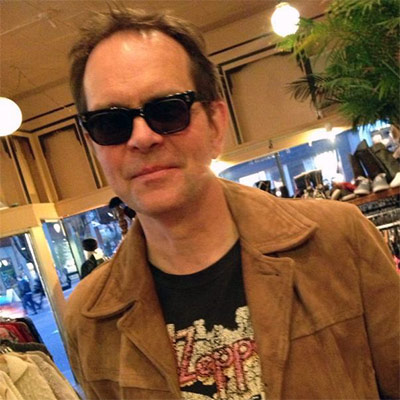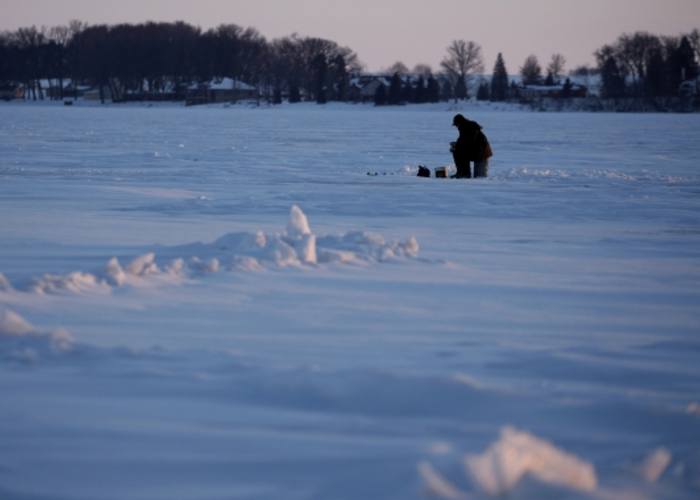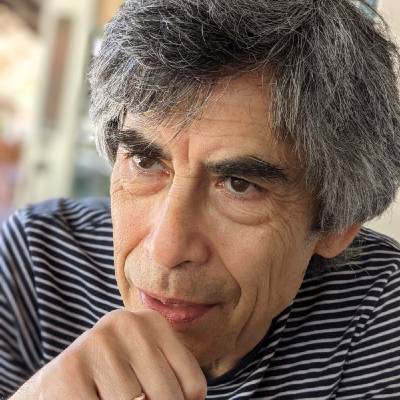About the Author:

Wayne Pernu
Portland, OR, US
Wayne Pernu is an American poet who grew up in Minnesota and now lives in Portland, Oregon.

Solitude and rest
are the gains I know
from stooping all day
in the wind and snow.
The harsh northern gusts
by God’s own device
harry the man who chops
a hole in the ice.
A plank board roof
on a corrugated shack
tells what I own more
than what I lack.
What I lack is the wisdom
to know how God
will raise the dead at judgment
from a frozen sod.
And all the prophets
of the Bible couldn’t know
the virtues of waiting
for a bite in the snow.
Подледный лов
Одинокий покой —
все, что я найду,
горбясь под снегом
у лунки на льду.
Ветром промозглым
Господня рука
хлещет нещадно
с пешней рыбака.
Дощатая крыша,
на стенах жесть —
на виду все, что есть у меня,
да не то, чего несть.
Несть мне мудрости
понять, как Господь
в страшный суд из земли
поднимет мертвую плоть.
Так библейским пророкам
не понять никогда
ожиданья поклевки
средь белого льда.
Translated into Russian by Dmitri Manin

Wayne Pernu is an American poet who grew up in Minnesota and now lives in Portland, Oregon.

Dmitri Manin is a physicist, programmer, and translator of poetry. His translations from English and French into Russian have appeared in several book collections. His latest work is a complete translation of Ted Hughes’ “Crow” (Jaromír Hladík Press, 2020) and Allen Ginsberg’s “The Howl, Kaddish and Other Poems” (Podpisnie Izdaniya, 2021). Dmitri’s Russian-to-English translations have been published in journals (Cardinal Points, Delos, The Café Review, Metamorphoses, etc) and in Maria Stepanova’s “The Voice Over” (CUP, 2021). In 2017, his translation of Stepanova’s poem won the Compass Award competition. “Columns,” his new book of translations of Nikolai Zabolotsky’s poems, was published by Arc Publications in 2023 (https://eastwestliteraryforum.com/books/nikolai-zabolotsky-columns-poems).
“13 short pieces…pungently convey the effects of growing up under a totalitarian regime.” .—Publishers Weekly
A new book of poems by Nina Kossman. “When the mythological and personal meet, something transforms for this reader…” —Ilya Kaminsky
Original poetry by Nina Kossman, accompanied by a selection of poems by Marina Tsvetaeva, translated from Russian by Kossman. “The sea is a postcard,” writes Nina Kossman. There is both something elemental in this vision and—iron-tough.”
—Ilya Kaminsky
A collection of nonsense poetry for readers who love Edward Lear, Hilaire Belloc, and all things delightfully peculiar.